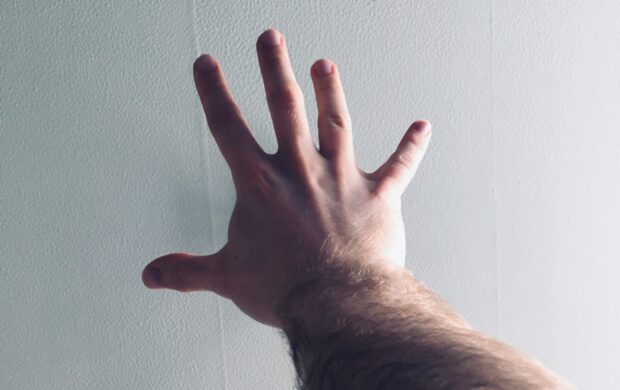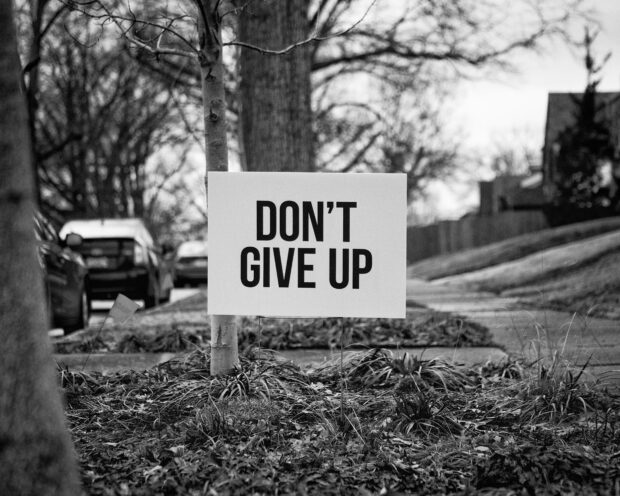
I knew when I started my drug trial that there would be an end point. It was one of the first things I asked about, because I didn’t want to be handed a possible solution to my struggles only to have it taken away in a few years.
At the time, I felt fragile and broken enough already. I didn’t believe I could handle falling apart again.
Turning my life around
There was a discussion around the drug being offered after the trial finished through ‘compassionate use’. This meant people could be allowed access to the treatment outside of clinical trials, but only in special circumstances. The idea was that if I received something that worked and turned my life around, it was only fair that I should be allowed to stay on it.
When I started the medication, my life did turn around – or rather, it was given back to me. My limp disappeared, my mobility returned, I had near-to-no pain and I made it through university. Sure, there was the odd ‘off day’ here and there, but I could manage. The drug really was the solution I’d hoped for.
Is this ethical?
As 2020 rolled around, the Covid-19 pandemic started, but the only thing that changed for me was that I had a couple of home visit check-ups, as opposed to them being at the hospital. Then one day in October, while on a break from work, I picked up a voicemail asking for me to call back.
I did – and that was the moment I found out, from a complete stranger (who was just doing her job), that my trial had ended and I wouldn’t be given any more of my medication. If this wasn’t enough of a shock, she’d been asked to tell people that if they had any of the medication, to stop taking it.
In my opinion, this didn’t seem very ethical!
Afraid I’d fall apart again
I was gobsmacked, confused, angry, upset – I had so many questions! But I didn’t have time to process any of this as I had to return to work.
Still in shock, I was afraid I’d fall apart again. Years had passed, but I still remembered where I was at my worst – physically and mentally – and I didn’t want to go back there.
Fortunately, I soon had a conversation with one of my nurses who had been with me from the start of the trial. She was angry at how I’d been told, but she reassured me and I felt a lot calmer about the whole situation.
I had to go some time without my medication, but I would have an appointment to discuss my options and that was all I needed to hear at that point.
Putting my foot down
 My appointment was a mixed experience. It was with someone I’d met on rare occasions throughout the course of the trial when my regular doctor wasn’t available. We didn’t get on, but I set that aside and went in ready to have a proper discussion.
My appointment was a mixed experience. It was with someone I’d met on rare occasions throughout the course of the trial when my regular doctor wasn’t available. We didn’t get on, but I set that aside and went in ready to have a proper discussion.
I brought up the topic of compassionate use and explained the conversation I had at the start of the trial. This was, I felt, batted away as he suggested another treatment he claimed was “just as good”, “would work fine” and that “plenty of people are taking it!”.
I got up to the “this is my life” part of my defence and burst into tears – the doctor was stunned into silence, clearly not expecting this reaction. I understood I’d been lucky to get onto a drug trial – especially one that proved so life-changing for me, whereas other patients might not have had such a positive experience. However, before the trial nothing I’d tried worked for me – I didn’t want to take any chances or risks when I knew what my body responded well to. I had to put my foot down.
I pushed for compassionate use. Thankfully, I got it and I’m happy to say I recently administered my first injection.
And, my condition has improved again.
Meet Jack and other friendly folk on Arthur’s Place Social, our Facebook Group
DISCLAIMER: A clinical trial compares the effects of one treatment with another, sometimes involving patients, healthy people, or both. Experiences and outcomes of clinical trials are different for everyone.
Clinical studies that look at investigating the effects of drugs or medical devices are subject to UK law and regulated by the Medicines and Healthcare Products Regulatory Agency (MHRA). Before the study can start through the Health Research Authority (HRA), NHS ethics approval is required.
For more information about clinical trials, visit: https://www.nhs.uk/conditions/clinical-trials/
Any opinions expressed in Jack’s blog are not necessarily shared by Arthur’s Place. Nothing that you read in Jack’s blog constitutes medical advice.
If you found this blog post interesting, you may find this article useful: https://arthursplace.co.uk/life/life-hacks/2021/05/28/how-to-communicate-confidently-with-your-doctors/
